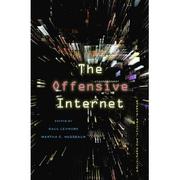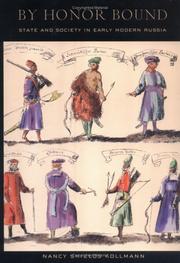| Listing 1 - 4 of 4 |
Sort by
|


ISBN: 0674058763 9780674058767 9780674050891 0674050894 9780674064317 0674064313 Year: 2012 Publisher: Cambridge, MA
Abstract | Keywords | Export | Availability | Bookmark
 Loading...
Loading...Choose an application
- Reference Manager
- EndNote
- RefWorks (Direct export to RefWorks)
The Internet has been romanticized as a zone of freedom. The alluring combination of sophisticated technology with low barriers to entry and instantaneous outreach to millions of users has mesmerized libertarians and communitarians alike. Lawmakers have joined the celebration, passing the Communications Decency Act, which enables Internet Service Providers to allow unregulated discourse without danger of liability, all in the name of enhancing freedom of speech. But an unregulated Internet is a breeding ground for offensive conduct. At last we have a book that begins to focus on abuses made possible by anonymity, freedom from liability, and lack of oversight. The distinguished scholars assembled in this volume, drawn from law and philosophy, connect the absence of legal oversight with harassment and discrimination. Questioning the simplistic notion that abusive speech and mobocracy are the inevitable outcomes of new technology, they argue that current misuse is the outgrowth of social, technological, and legal choices. Seeing this clearly will help us to be better informed about our options. In a field still dominated by a frontier perspective, this book has the potential to be a real game changer. Armed with example after example of harassment in Internet chat rooms and forums, the authors detail some of the vile and hateful speech that the current combination of law and technology has bred. The facts are then treated to analysis and policy prescriptions. Read this book and you will never again see the Internet through rose-colored glasses.
Internet --- Libel and slander --- Privacy, Right of --- Reputation (Law) --- Evidence, Character --- Fama publica --- Character evidence --- Evidence (Law) --- Law and legislation --- Diffamation --- Droit à la vie privée --- Droit
Book
ISBN: 9781138590373 1138590371 0429956800 0429491077 0429956819 0429956797 Year: 2018 Publisher: Boca Raton, FL : Routledge,
Abstract | Keywords | Export | Availability | Bookmark
 Loading...
Loading...Choose an application
- Reference Manager
- EndNote
- RefWorks (Direct export to RefWorks)
The ideal of an inclusive and participatory Internet has been undermined by the rise of misogynistic abuse on social media platforms. However, limited progress has been made at national – and to an extent European – levels in addressing this issue. In England and Wales, the tackling of underlying causes of online abuse has been overlooked because the law focuses on punishment rather than measures to prevent such abuses. Furthermore, online abuse has a significant impact on its victims that is underestimated by policymakers. This volume critically analyses the legal provisions that are currently deployed to tackle forms of online misogyny, and focuses on three aspects; firstly, the phenomenon of social media abuse; secondly, the poor and disparate legal responses to social media abuses; and thirdly, the similar failings of hate crime to tackle problems of online gender-based abuses. This book advances a compelling argument for legal changes to the existing hate crime, and communications legislation.
Libel and slander --- Hate crimes --- Misogyny --- Internet --- Law and legislation --- Cyberstalking --- Online social networks --- Diffamation --- Crimes haineux --- Misogynie --- Harcèlement criminel sur Internet --- Réseaux sociaux (Internet) --- Droit --- DARPA Internet --- Internet (Computer network) --- Wide area networks (Computer networks) --- World Wide Web --- Women-hating --- Misanthropy --- Sexual animosity --- Bias crimes --- Bias-related crimes --- Hate-motivated crimes --- Hate offenses --- Crime --- Libel and slander - Great Britain --- Hate crimes - Great Britain --- Misogyny - Great Britain --- Internet - Law and legislation - Great Britain
Book
ISBN: 080478373X 9780804783736 0804772347 9780804772341 9780804788670 0804788677 Year: 2012 Publisher: Stanford, California Stanford University Press
Abstract | Keywords | Export | Availability | Bookmark
 Loading...
Loading...Choose an application
- Reference Manager
- EndNote
- RefWorks (Direct export to RefWorks)
Henry Ford is remembered in American lore as the ultimate entrepreneur-the man who invented assembly-line manufacturing and made automobiles affordable. Largely forgotten is his side career as a publisher of antisemitic propaganda. This is the story of Ford's ownership of the Dearborn Independent, his involvement in the defamatory articles it ran, and the two Jewish lawyers, Aaron Sapiro and Louis Marshall, who each tried to stop Ford's war.In 1927, the case of Sapiro v. Ford transfixed the nation. In order to end the embarrassing litigation, Ford apologized for the
Anti-Jewish propaganda --- Antisemitism --- Hate speech --- Trials (Libel) --- Libel and slander --- Defamation against groups --- Group defamation --- Group libel --- Racist speech --- Speech, Hate --- Anti-Jewish attitudes --- Anti-Semitism --- Ethnic relations --- Prejudices --- Philosemitism --- Antisemitic propaganda --- Propaganda --- History --- Ford, Henry, --- Sapiro, Aaron --- Ford, Henry --- Ford, Genri, --- Fu-tʻe, Heng-ti, --- Fute, Hengli, --- Hphu-the, Heṅ-li, --- K̲apōrṭu, Hen̲r̲i, --- פארד, הענרי --- Dearborn independent. --- Procès (Diffamation) --- Propagande antisémite --- Antisémitisme --- Propagande haineuse --- Histoire --- Trials, litigation, etc.

ISBN: 1501707191 1501706969 9781501706967 0801434351 9781501707193 9781501707193 1501706950 Year: 1999 Publisher: Cornell University Press
Abstract | Keywords | Export | Availability | Bookmark
 Loading...
Loading...Choose an application
- Reference Manager
- EndNote
- RefWorks (Direct export to RefWorks)
In the sixteenth and seventeenth centuries, Russians from all ranks of society were bound together by a culture of honor. Here one of the foremost scholars of early modern Russia explores the intricate and highly stylized codes that made up this culture. Nancy Shields Kollmann describes how these codes were manipulated to construct identity and enforce social norms--and also to defend against insults, to pursue vendettas, and to unsettle communities. She offers evidence for a new view of the relationship of state and society in the Russian empire, and her richly comparative approach enhances knowledge of statebuilding in premodern Europe. By presenting Muscovite state and society in the context of medieval and early modern Europe, she exposes similarities that blur long-standing distinctions between Russian and European history.Through the prism of honor, Kollmann examines the interaction of the Russian state and its people in regulating social relations and defining an individual's rank. She finds vital information in a collection of transcripts of legal suits brought by elites and peasants alike to avenge insult to honor. The cases make clear the conservative role honor played in society as well as the ability of men and women to employ this body of ideas to address their relations with one another and with the state. Kollmann demonstrates that the grand princes-and later the tsars-tolerated a surprising degree of local autonomy throughout their rapidly expanding realm. Her work marks a stark contrast with traditional Russian historiography, which exaggerates the power of the state and downplays the volition of society.
Diffamation --- Honneur --- Honor --- Libel and slander --- Courts of honor --- History. --- Soviet Union --- History --- Honor, Courts of --- Business ethics --- Legal ethics --- Medical ethics --- Calumny --- Defamation --- Slander --- Torts --- Honour --- Chivalry --- Conduct of life --- Law and legislation --- Советский Союз --- Ber. ha-M. --- Zwia̦zek Socjalistycznych Republik Radzieckich --- Szovjetunió --- TSRS --- Tarybų Socialistinių Respublikų Sąjunga --- SRSR --- Soi︠u︡z Radi︠a︡nsʹkykh Sot︠s︡ialistychnykh Respublik --- SSSR --- Soi︠u︡z Sovetskikh Sot︠s︡ialisticheskikh Respublik --- UdSSR --- Shūravī --- Ittiḥād-i Jamāhīr-i Ishtirākīyah-i Shūrāʼīyah --- Russia (1923- U.S.S.R.) --- Sovetskiy Soyuz --- Soyuz SSR --- Sovetskiĭ Soi︠u︡z --- Soi︠u︡z SSR --- Uni Sovjet --- Union of Soviet Socialist Republics --- USSR --- SSṚM --- Sovetakan Sotsʻialistakan Ṛespublikaneri Miutʻyun --- SSHM --- Sovetakan Sotsʻialistakan Hanrapetutʻyunneri Miutʻyun --- URSS --- Unión de Repúblicas Socialistas Soviéticas --- Berit ha-Moʻatsot --- Rusyah --- Ittiḥād al-Sūfiyītī --- Rusiyah --- Rusland --- Soṿet-Rusland --- Uni Soviet --- Union soviétique --- Zȯvlȯlt Kholboot Uls --- Związek Radziecki --- ESSD --- Sahaphāp Sōwīat --- KhSHM --- SSR Kavširi --- Russland --- SNTL --- PSRS --- Su-lien --- Sobhieṭ Ẏuniẏana --- FSSR --- Unione Sovietica --- Ittiḥād-i Shūravī --- Soviyat Yūniyan --- Russian S.F.S.R. --- Courts --- Tribunaux --- Histoire --- Russia --- Courts of honor - Russia - History. --- Libel and slander - Russia - History. --- Honor - Russia - History. --- Patriarchy --- Muscovy --- litigation --- culture of honor --- Muscovite --- strategies of integration --- absolutist state --- European history --- early modern Russia
| Listing 1 - 4 of 4 |
Sort by
|

 Search
Search Feedback
Feedback About UniCat
About UniCat  Help
Help News
News